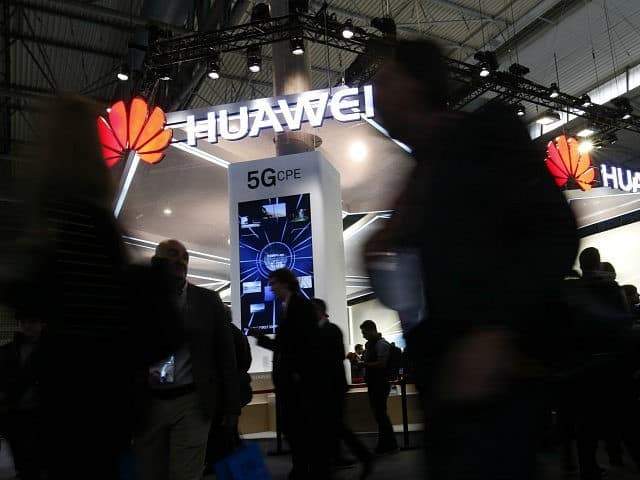Report: U.S. Reviewing All Military and Intelligence Assets in Britain After Boris Johnson’s Huawei Deal

The U.S. has begun a review of every military and intelligence asset in the UK following security concerns that have been raised over Boris Johnson’s decision to allow Chinese tech giant Huawei to help build the nation’s 5G network, security sources claim.
The Pentagon, the State Department, and 17 intelligence agencies are reportedly carrying out the review which will determine whether classified intelligence and military actions, personnel, and equipment should be moved out of Britain.
A former member of the White House’s National Security Council (NSC) reportedly told The Telegraph that it was “likely” that the review would result in military assets being removed from the UK.
“This was not a bluff. You cannot mitigate the danger Boris Johnson is exposing the UK to by letting Huawei into the network,” the former official said.
“This review is not a punishment. This is the White House saying ‘okay, if they’re going to go down this path and put themselves at risk then how do we protect ourselves,'” the source explained.
Among the primary targets for removal is believed to be a group of American RC-135 reconnaissance aircraft that have been used to gather information from the battlefield in the war against Islamic State. The spy planes are officially stationed in Nebraska; however in practice they spend most of their time at RAF Mildenhall in Suffolk, England, where some 500 American troops are based.
The status of American intelligence operatives stationed in the country has also come into question, as officials fear that the United Kingdom’s 5G network could compromise the personal phones of U.S. agents, while they are conducting classified missions in Britain.
Boris Johnson’s government has claimed that Huawei will only have access to the ‘periphery’ of the United Kingdom’s 5G network, preventing the company from accessing the “core” of the system.
In April, Sir Simon McDonald, the Foreign Office’s permanent undersecretary, said that the British government had made a “firm decision” to allow the Chinese company to help build the network.
“China is a very important partner of the United Kingdom, and I think it’s compatible to proceed with the Huawei decision and have the strategically independent relationship that I have been talking about,” Sir Simon added.
Officials from the United States have long warned their British counterparts that allowing Huawei to help construct the country’s 5G network could compromise security, as they believe the Chinese telecommunications company has the capability of building backdoor access into its systems.
“Britain is forcing us into a corner to make decisions and ponder consequences that we don’t want to make or ponder,” a Republican congressional aid said.
“We would rather the special relationship be renewed and revitalised in this new era of great power competition, but it is difficult to do when genuine security interests were discarded,” he added.
The final decision on what, if any, American assets will be removed from the country has yet to be determined, with President Donald Trump needing to sign off on any military move.
Photo: PAU BARRENA/AFP/Getty Images











